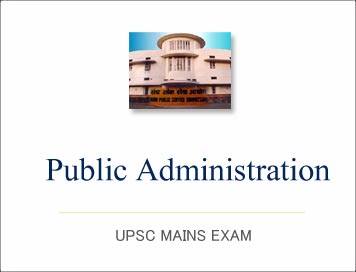Public Administration Mains 2022 : Solved Paper-2 (Question: 5)

Public Administration Mains 2022 : Solved Paper Question Paper-2 (Question-5)
Section B
- Exam Name: UPSC IAS Mains Public Administration (Paper-II)
- Year : 2022
- Marks: 250
- Time Allowed: 3 Hours
5.Answer the following in about 150 words. (10 x 5 = 50)
5:- (a) Examine the lateral entry recruitment in government in the context of Part XIV of the Indian Constitution.10
When individuals from the private sector are selected for a government administrative position despite not being selected through a bureaucratic process, this is known as lateral entry.Since public service delivery mechanisms cannot function effectively without highly skilled and motivated individuals at the helm, lateral entry is required in today's world. Like competition in any field, lateral entry is beneficial, and Part XIV has established the merit-based recruitment principle. To make it a force for positive change, however, serious consideration is required regarding entry requirements, job assignments, the number of employees, and training. In addition, comprehensive administrative reforms require reforms of the "permanent" system, particularly its seniority principle.
(b) Examine the role of Securities and Exchange Board of India (SEBI) in protecting the interests of the investors in securities. (10)
ANSWER: ONLY FOR COURSE MEMBERS
(c) Citizens charters in India have not succeeded in their objectives in making administrative system citizen centric. Do you agree? Give reasons. (10)
ANSWER: ONLY FOR COURSE MEMBERS
(d) Following the onset of globalisation, the traditional bureaucratic model appears to have lost its significance. Comment.
ANSWER: ONLY FOR COURSE MEMBERS
(e) “The financial suitability of the Urban local bodies can become a reality only when they receive their due share of public finances.” Explain
The majority of India's urban local bodies (ULBs) lack financial autonomy and resource mobilization, according to an examination of their finances. India's total revenue from all ULBs is about 1% of the country's GDP, compared to Brazil's 5% and South Africa's 6%, respectively. This raises the question of whether the ULBs—or all local bodies—really constitute the third branch of government. The real benefits of decentralization can only be realized if local governments are financially stable. The ULBs' financial situation is dire because their "own tax" revenue sources are stagnant and they are increasingly dependent on the State or the Centre to meet their demands. The need of the hour is the devolution of additional tax sources to ULBs, which must be addressed as soon as possible to increase their revenue base, which will enable them to effectively perform their functions and carry out development projects.
